

The Resistance of the Actor Who Can Feel
Only your inner light will illuminate the darkness of your own stone walls. This is called resistance."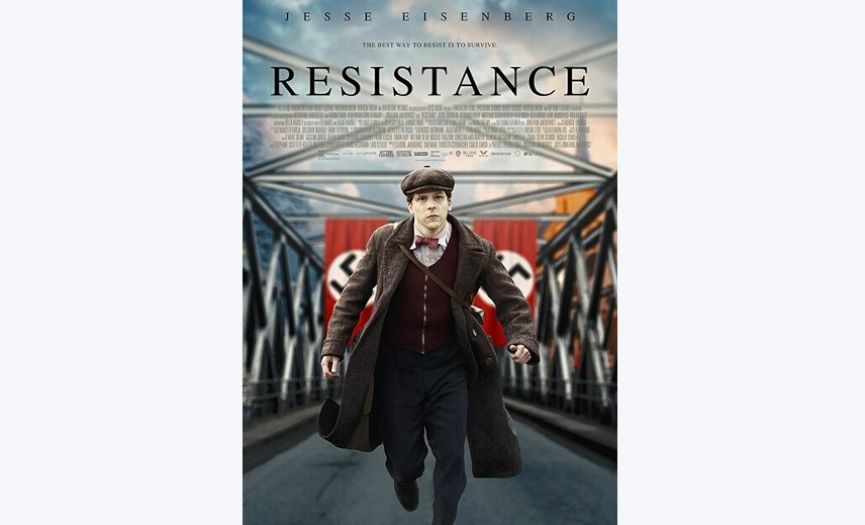
"Only your inner light will illuminate the darkness of your own stone walls. This is called resistance."
You don't have a voice, but you have a language. You talk and explain with your hands, your face, your whole body. The stone walls you touch come to life. You put on and take off dozens of masks on your face. You feel it. You act it out. “Pantomime” is the resistance of the actor who can feel.
While receiving mime training as an actor; I learned to create Time and Space, to communicate with fictional objects, and to keep all parts of my body in balance both during movement and when I remain motionless. I learned to resist in order to stay balanced.
I have a lot to say about the movie Resistance, which tells the story of Marcel Marceau, the master of silent art, joining the French Resistance Movement first with his art and then with his conscience, and smuggling Jewish children who were rescued from Nazi oppression in Germany to Switzerland by spending a lot of money with all kinds of difficulties.
Jesse Eisenberg plays the role of Marcel Marceau in the film, directed and written by Jonathan Jakubowicz. He performs such a natural, sensitive game that you wouldn't even notice Ed Harris, one of the other leading actors, unless they show his face in close-up... The movie, released in 2020, lasts 2 hours and its IMDB score is 5.7.
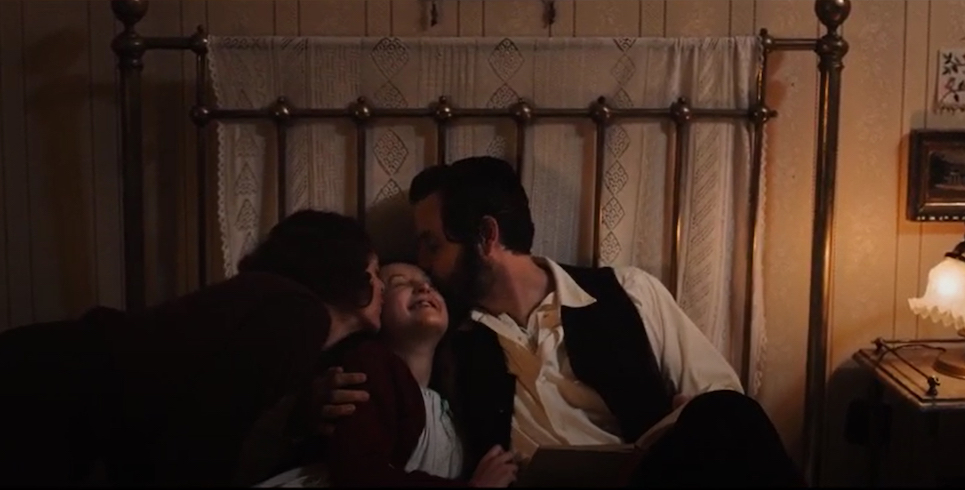
Love is not enough to preserve the unity of the Jewish family; speaking the truth is essential...
"Father! Why do they hate us?"
We are in Munich in 1938 Nazi Germany. A Hebrew prayer hanging on the wall; we are in the house of a Jewish family who embrace each other with the love they show for their daughter, who is on the verge of becoming a young girl. We suddenly leave this picture of happiness with the question the girl asks her father: "Father! Why do they hate us?”
As we, the audience, are about to start thinking about the answer to this question, the father answers: “I don't think they hate us. Hitler only blames us for the suffering of the working class, and some people choose to believe him. The economy is improving. We just have to continue contributing to Germany, as we always have." Immediately afterward, events occur in such a way that will embarrass his mother, who says the cliché sentence, "You are too young to worry about these things."
Whether it is to speed up the Jewish girl's transition to a dream who is about to fall asleep or to draw attention to the family's assimilation, the director plays the sound of bells in the background. As an audience, you say: "It must be difficult to be a Jew in a Christian environment" and the result... The door is being broken so violently that it wakes the girl up from her sleep, Nazis beating and executing her father and mother, and then the Jewish girl, who was convinced that she was too young to worry about all this, loses her family and fears for her life. Then, darkness… You think, if the mother and father had been able to perceive the seriousness of the situation they were in, had not deceived themselves with naive inferences, and had not promised the child a rose garden, the child would have been prepared for anything, and yes, she was old enough to worry...
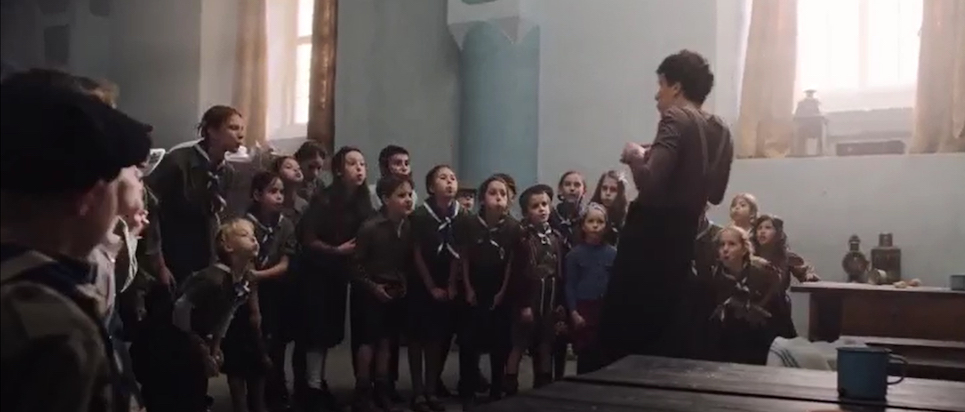
Marcel Marceau relieves children's panic and fear by pantomiming them
"I don't want to tuck my tail in without doing anything and run away"
It's time for the scenes where we will see the healing effect of mime art on human nature. 120 children from various cities of Germany, along with the girl coming from Munich, whose lives were saved by spending a lot of money, are being transferred to France. Marcel, working for his father who is a butcher, places these children in a place together with his older brother and cousin.
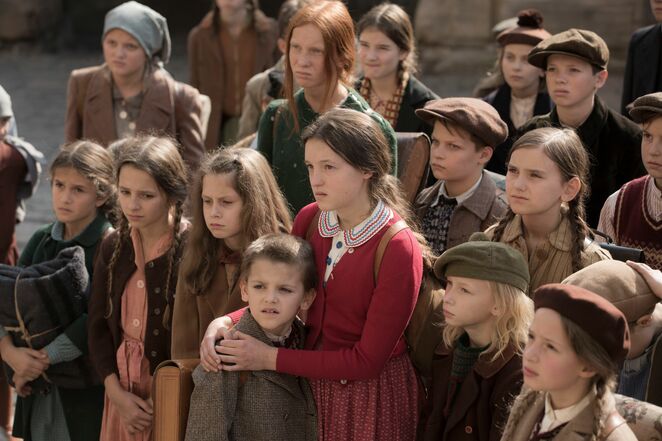
The despair and fear of Jewish children can be seen in their eyes
Marcel helps children make peace with reality through pantomime, in the environment of anxiety and fear created by children. As the audience, we once again realize the impact of art, especially the theater, which is in direct communication with people. The art of pantomime, which is theater without words, becomes a side ornament of their lives, which was between a rock and a hard place.
At every stage of the film, we see how necessary and useful pantomime and disciplined body, face and movement training are.
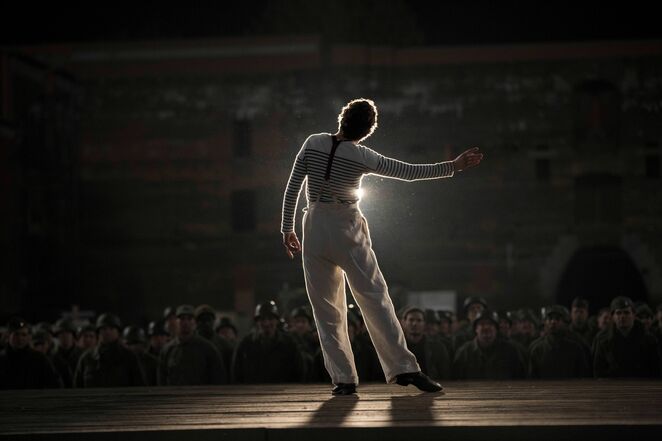
Marcel Marceau performs a dramatic pantomime show on stage in front of the soldiers
Marcel's sentence explaining his desire to join the French Resistance Movement to his father, who had wanted to be an opera singer but had to become a butcher, allows us to see the underlying main idea of the film: "I don't want to run away with my tail tucked in without doing anything." Marcel does what he says, smuggling hundreds of Jewish children to Switzerland in small groups.
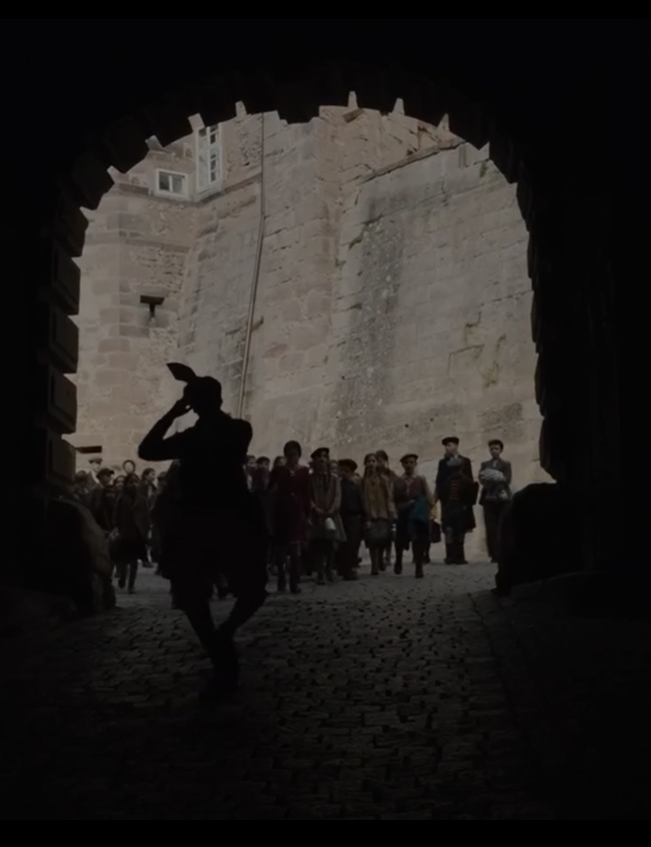
The visual aesthetics of the shofar blowing scene are as memorable as the sound
The unifying effect of blowing the shofar
I can't help but tell you about one of the most effective scenes of the movie. Jewish children dressed in scout uniforms gather in the square before leaving for their journey to Switzerland. Scout leaders and Marcel and his friends, who will join the resistance, tell the children how to protect themselves for the last time. The following sentences said by the scout leader in his speech affect the children greatly: “Rosh Hashanah1 is ahead of us. We welcome a new century. We are entering the 5700th year (Gregorian 1940). They rise against us in every generation. Sometimes a strong man, sometimes an army, or a nation tries to destroy the Jewish people. But here we are together. Now we will blow the shofar2. This way, you will have a memory to remind you that you are not alone.” Marcel starts blowing the shofar. The children say “Shalom aleichem Malachei há shaaret malachei elion”3 and are directed to the train station to be taken south. In this scene, the director used the acoustics of the square inside the walls of an old castle so effectively that the sound of the shofar does not drown out the voices of the children. Both, at an appropriate sound mixing level, double the impact of the scene. You get chills.
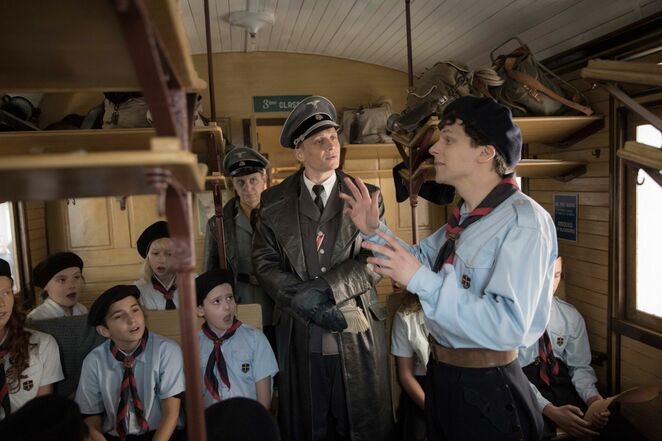
Jewish children in scout uniforms, who are taken to the south by train, sing the hymn Ave Maria under the direction of Marcel, so that the Nazi officer does not become suspicious
During the evacuation of all of Strasbourg to the south of France, the Nazis do not refrain from committing massacres again. Resistance is a movie that you can watch with heart-pounding excitement. It is a film where you can observe the effects of pantomime art and feel the effect of art, even under difficult conditions, in your bones.
Published in Şalom Magazine, on June 1, 2022, in Turkish:
https://dergi.salom.com.tr/haber-977-hissedebilen_oyuncunun_direnisi.html
1 It is the day when the new year begins according to the Hebrew calendar. It also represents the creation of the world or the universe.
2 The shofar is a traditional instrument used by Jews, usually made of goat or ram horns, and is played on Rosh Hashanah and Yom Kippur.
3 A Jewish hymn sung before the Shabbat meal on Friday night. It signals the beginning of the Shabbat by welcoming the angels accompanying the person.
Related News











